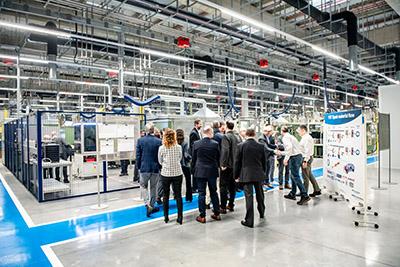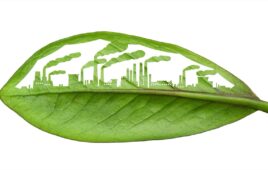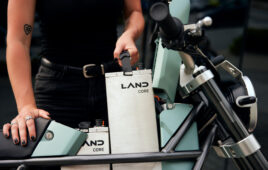 Freudenberg Sealing Technologies’ newest production facility in Parets del Vallès, Spain (near Barcelona) is a fully carbon-neutral plant. The facility manufactures automotive components and replaces an existing plant at the same location. The company said it is boosting its production capacity by 15%. In all, more than 11 million euros have been invested in the new production facility.
Freudenberg Sealing Technologies’ newest production facility in Parets del Vallès, Spain (near Barcelona) is a fully carbon-neutral plant. The facility manufactures automotive components and replaces an existing plant at the same location. The company said it is boosting its production capacity by 15%. In all, more than 11 million euros have been invested in the new production facility.
Systems in the new building are powered entirely by green electricity, with 25% coming from photovoltaics on the roof of the plant. Furthermore, the facility employs an energy-efficient and eco-conscious cleaning technique for exhaust air from coating processes through microorganisms. These metabolize the hydrocarbons in the solvents into water and CO2. This eliminates the need for an additional heating medium — no gas has to be burned to purify the exhaust air. As a result, the new production facility is one of the most modern and sustainable sites for Freudenberg.
“This is a highly innovative plant that is carbon-neutral, thus aligning with both present and future automotive industry standards,” said Carlos Arnau Calduc, Freudenberg Sealing Technologies VP. “Investing in the new plant in Parets del Vallès is the best example of Freudenberg’s commitment to both the automotive industry and to Spain as a business hub.”
The new plant, at 6,800 square meters, is home to 171 employees. The Parets del Vallès site was established in 1973 and the company has been producing damper seals there since the beginning. Roughly 80% of the production volume remains in Europe and goes primarily to Spain and Poland, with some parts shipped to Germany. The remainder is exported to America and Asia.
The new production facility brings Freudenberg another step closer to its climate targets: to reduce relative CO2 emissions by 30% from 2020 to 2025, measured in tons per million euros of sales. By 2030, the company aims to fulfill its electricity needs entirely through renewable energy sources, aspiring to carbon neutrality by 2045.
“We know that we can only achieve our climate targets if we move forward quickly and decisively. This means that we want to rapidly conserve energy by continuously optimizing our products and technologies, reducing waste, and improving the energy efficiency of buildings. For us, sustainable management means using materials and energy consciously and minimizing CO2 emissions during production,” said Dr. Matthias Sckuhr, CTO and COO.
Filed Under: Green engineering • renewable energy • sustainability




